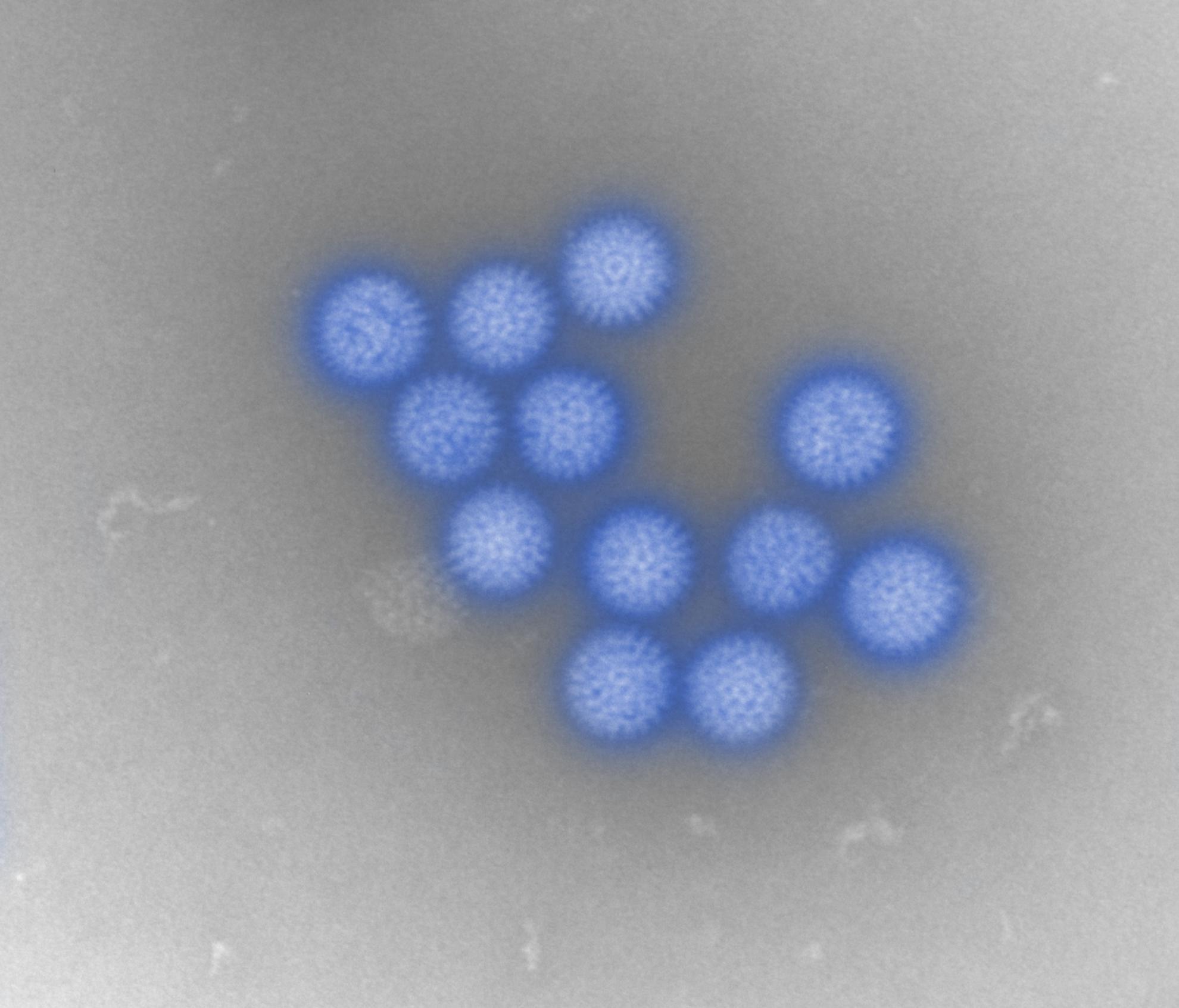The double-stranded RNA bluetongue virus induces type I interferon in plasmacytoid dendritic cells via a MYD88-dependent TLR7/8-independent signaling pathway
Dendritic cells (DCs), especially plasmacytoid DCs (pDCs), produce large amounts of alpha/beta interferon (IFN-alpha/beta) upon infection with DNA or RNA viruses, which has impacts on the physiopathology of the viral infections and on the quality of the adaptive immunity. However, little is known about the IFN-alpha/beta production by DCs during infections by double-stranded RNA (dsRNA) viruses. We present here novel information about the production of IFN-alpha/beta induced by bluetongue virus (BTV), a vector-borne dsRNA Orbivirus of ruminants, in sheep primary DCs. We found that BTV induced IFN-alpha/beta in skin lymph and in blood in vivo. Although BTV replicated in a substantial fraction of the conventional DCs (cDCs) and pDCs in vitro, only pDCs responded to BTV by producing a significant amount of IFN-alpha/beta. BTV replication in pDCs was not mandatory for IFN-alpha/beta production since it was still induced by UV-inactivated BTV (UV-BTV). Other inflammatory cytokines, including tumor necrosis factor alpha (TNF-alpha), interleukin-6 (IL-6), and IL-12p40, were also induced by UV-BTV in primary pDCs. The induction of IFN-alpha/beta required endo-/lysosomal acidification and maturation. However, despite being an RNA virus, UV-BTV did not signal through Toll-like receptor 7 (TLR7) for IFN-alpha/beta induction. In contrast, pathways involving the MyD88 adaptor and kinases dsRNA-activated protein kinase (PKR) and stress-activated protein kinase (SAPK)/Jun N-terminal protein kinase (INK) were implicated. This work highlights the importance of pDCs for the production of innate immunity cytokines induced by a dsRNA virus, and it shows that a dsRNA virus can induce IFN-alpha/beta in pDCs via a novel TLR-independent and Myd88-dependent pathway. These findings have implications for the design of efficient vaccines against dsRNA viruses.
Back to publications
Publication
Contributors
Ruscanu S, Pascale F, Bourge M, Hemati B, Elhmouzi-Younes J, Urien C, Bonneau M, Takamatsu H, Hope J, Mertens P, Meyer G, Stewart M, Roy P, Meurs E F, Dabo S, Zientara S, Breard E, Sailleau C, Chauveau E, Vitour D, Charley B, Schwartz-Cornil I
Year
2012
Journal
Journal of Virology
Volume
86
Issue
10
Pages
5817-5828
